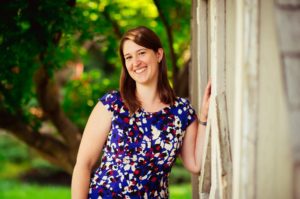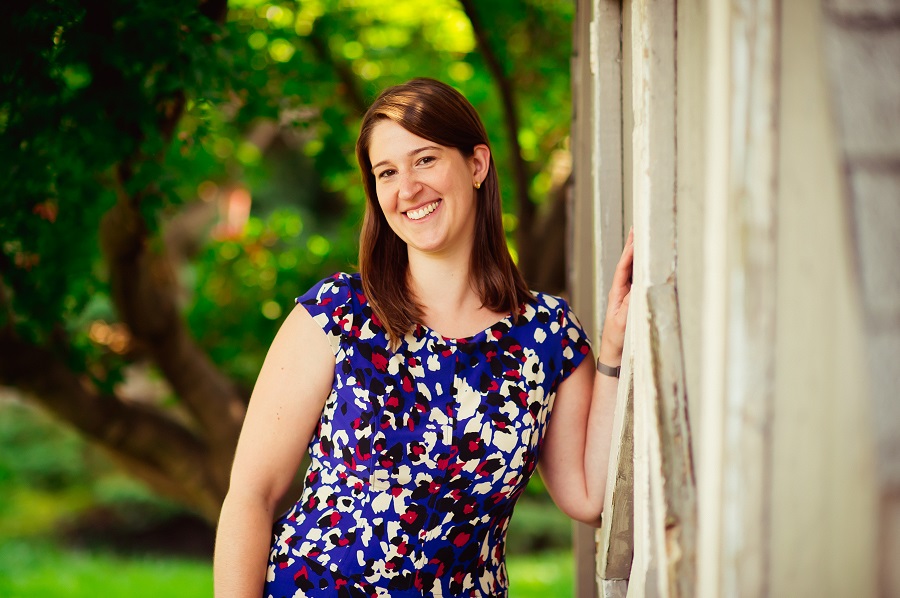Rachel Gildiner
 My work as an educator and Jewish leader has always been about (1) fostering kehillah, and (2) deepening kehillot with kedusha. I believe wisdom, learning, confidence, further involvement, Jewish risk-taking, asking questions, engaged Jewish life, emerges from positive experiences of community first and foremost. And it has been my experience that as we grow older, we long more and more for those communities that will embrace, push, and value us as holistic individuals. That personal investment from others is what encourages individuals to grow, deepen knowledge, and pursue tzedek among other Jewish values.
My work as an educator and Jewish leader has always been about (1) fostering kehillah, and (2) deepening kehillot with kedusha. I believe wisdom, learning, confidence, further involvement, Jewish risk-taking, asking questions, engaged Jewish life, emerges from positive experiences of community first and foremost. And it has been my experience that as we grow older, we long more and more for those communities that will embrace, push, and value us as holistic individuals. That personal investment from others is what encourages individuals to grow, deepen knowledge, and pursue tzedek among other Jewish values.
This concept of kehillah, however vital, can be more complicated that one might presume. I am a (usually proud) product of Jewish institutions. Hebrew school, synagogues, summer camps and even the Jewish Theological Seminary were some of my first and most formative Jewish communities that I encountered. I was lucky that my parents could afford these opportunities for me and that they themselves were committed to Jewish education and Jewish life for our family. However, as I went through my studies at JTS, thought back about my time in a public school filled with Jews by name only, and then as I became a young adult, I was continually confronted with how our institutions are failing / ignoring / alienating / discouraging so many Jews who refuse to fit into or follow institutional boxes. It is this awareness and discomfort as an “insider” myself that now propels me to think about how to create communities that invite, not discourage, new faces and people who don’t check boxes.
This insider/outsider mindset has been both an asset and a challenge as I work with other Jewish professionals. Now, when I think about prayer communities, I don’t worry first about where to get siddurim. I ask myself – how will this space be welcoming for people who have had negative experiences with prayer, who don’t know Hebrew, who won’t know anyone else in the room? Who will be the personal face to greet them or chat with them after the service to process the experience; where will they find supplemental inspiration through poems or a gallery wall of quotes in the back? How will the deeper themes of our liturgy speak to their lives? I believe in and practice what has now been termed “radical hospitality” but I have always believed that authentic relationship building requires us not only to bring Jews in, but to deeply and truly know them. What else is community/kehillah about if not a group of people who care about one another?
Martin Buber’s writings are an inspiration for how I think about and strive to foster kehillah and kedusha. Sometimes, when we start creating experiences that are inclusive or non-traditional, I hear terms like – watering down, diluting, standing for nothing, etc. But Jewish experiences and Jewish life is a journey. I truly believe that most instances of true connection, deeper meaning, transformative prayer or ritual experiences, happen when you are wholly and holy connected to other Jews and other people who support you and believe in you on your journey of Jewish exploration. This doesn’t mean they don’t also happen in solitude – some of my most moving spiritual moments happened sitting alone in a Friday night service where I didn’t know anyone, standing above Masada looking out into the abyss on my own. But they didn’t happen in a vacuum. I knew I’d have people – rabbis, peers, mentors, etc. – who would listen and embrace and validate these experiences with me. That is kehillah kedushah. And it truly is the essential proposition for engaging covenantal and unengaged Jews.
What it also means is that “the” kehillah or Jewish community in general, will and should begin to look very different. I’m reminded of the midrash of God inviting Moshe up to Mount Sinai a bit early to watch God finishing writing the crowns upon each letter of the Torah. God then sends Moshe back to the future to show him how Rabbi Akiva teaches Torah to the students in his class. Moshe doesn’t even recognize that it’s Torah because of the radical and expanded conversation the students are having about it. But God reassures him through the voice of a student – no, this is the Torah from Moshe at Sinai, the very same Torah that we now expound upon and innovate from within. This need for innovative communities, innovative wisdom, innovative ways to engage with tradition, are and will continue to be essential to engaging more and more Jews. And it starts with communities.
I feel fortunate that through my 10 years of Jewish professional work I have had the opportunity to help launch and develop several innovative initiatives to meet these goals. Joining Hillel International’s groundbreaking relationship-based engagement pilot (CEI) from the ground in 2007 taught me how existing and historical institutions do, in fact, have the capacity to change from within, to adapt and be flexible to meet new and growing needs of the population. Over seven years there I had six different titles, worked on multiple new and innovative projects including growing into Director of Projects to connect engagement (through CEI) and learning (through Senior Jewish Educators); then Engage2Educate, now Ezra Fellows that combines these roles into one junior professional on campus. I learned so much about innovating from within an existing organization that when I began directing Gather the Jews a year ago, it was incredible to see how quickly the energy of a Jewish start-up could get off the ground. Gather the Jews is all about getting out to the grassroots, encouraging a DIY ethos, and helping Jews make Judaism relevant to them.
I would say there are additional concepts and methodologies beyond the four propositions that Rabbi Sid set forth that we use to advance our work, but they are not the fundamental ends in and of themselves. Some of these strategies include “relationology”, understanding networks, tribal leadership, and individual ownership/identity development of emerging adults.
________________________
Rachel Gildiner directs Gather the Jews which supports and provides resources to Jewish 20s & 30s in the DC area. She strives to help every Jew find or create a relevant and meaningful Jewish life, through deep listening, creative problem solving, and through the power of immersive experiences.


